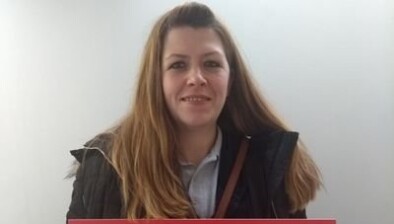Cyrenians column: New Edinburgh Inclusive Homelessness Service plans welcome

Cyrenians’ exclusive monthly column for Scottish Housing News continues with outreach service manager, Mike Wright, outlining the importance of building relationships when working to reduce homelessness.
I was very pleased to read about the plans for the new Integrated Homelessness Service in Edinburgh. The idea is that the service will offer homeless people a more holistic and joined up service by combining staff from Health, Housing, Social Work and the Voluntary sector under one roof. Situated in the old Panmure St Ann’s school on the Cowgate in Edinburgh, the new service will aim to offer a ‘one stop shop’ for people who face many difficulties in their lives.
This is in line with recently published research by the Scottish Government on Health and Homelessness in Scotland, which indicates the importance of taking a more integrated approach.
At Cyrenians we have been fortunate to host Birgit, the Inclusive Edinburgh Case Coordinator, over the past two years. Birgit delivers support to people experiencing severe and multiple challenges in a number of areas including homelessness, physical and mental ill health and substance use. She takes an integrated approach by working holistically with people rather than being attached to any specific support need. She coordinates the network of support people may have in areas such as housing and health by linking them up with professionals like nurses, addiction workers and housing officers. This allows her to be more flexible and often to achieve better results than would be the case if she were tied to one specific service such as housing.
Birgit offers a relationship-based and person-centred approach, where the key to change lies in developing trust and a sense of mutual respect with her client. People who experience multiple disadvantage often have difficulty with supportive relationships. People who experience multiple disadvantage often have difficulty with supportive relationships. This is generally accepted to be the result of a number of inter-dependent factors, such as eligibility criteria and access routes to services, as well as the life experiences of the individual, such as trauma, adversity and poverty.
Therefore, for someone who experiences multiple challenges, having a worker they can gradually come to trust is fundamental to change and key to the success of this project.
We have recently been lucky to work with Scarlet Neath, a Masters of Public Policy Student from Edinburgh University. Scarlet has been evaluating the delivery of Birgit’s Case Coordinator post and what implications it has for the provision of homeless services in the future. Scarlet has spent time with Housing Officers, GPs, Psychologists and Clinical staff in order to understand the impact of a coordinated response to addressing severe and multiple disadvantage, and she has found our Case Coordinator role to be extremely valuable.
Broadly speaking, the value of this role has manifested itself in three ways. Firstly, the flexibility of the Case Coordinator to take the service to where people need it to be – such as on the street or in people’s temporary accommodation - is extremely useful and practical. Many of the statutory services are not able to operate outwith their offices and this type of assertive outreach helps to connect people to services they need.
Secondly, there has been a realisation that people’s lives cannot easily be broken down into subject areas. How can we, for example, treat someone’s health properly if they have nowhere to sleep that night and no access to food? Services need to work together to provide a comprehensive offer of support that takes account of all aspects of a person’s life.
The third aspect relates to housing; people who feel they have been let down by the housing system are often reluctant to use it again. Unable to access accommodation that caters for their needs, they have often been through an endless cycle of moving in and out of B+Bs and hostels. Through the creation of a relationship with her clients based on mutual trust and respect, our Case Coordinator is able to help people access and sustain accommodation. By working together, the Coordinator and the people she works with can plan to overcome barriers to accessing services and make better use of available housing options. The recent evaluation has shown that, prior to receiving housing support from the Coordinator, only 11% of her clients were living in a suitable form of accommodation, whereas after involvement with her this rose to 58%.
The Coordinator’s involvement has also brought about a number of other strong outcomes, including stabilising substance usage, reducing A+E admissions, income maximisation, reconnecting with family members and increased social networks.
Relationships are at the heart of all we do at Cyrenians. We build a relationship of trust and respect between people; this can be the catalyst for real change. We must also remember that relationships are equally important with our partners in statutory services if we are not to repeat the type of fragmented care-giving that can lead to marginalising or excluding our most vulnerable people.







